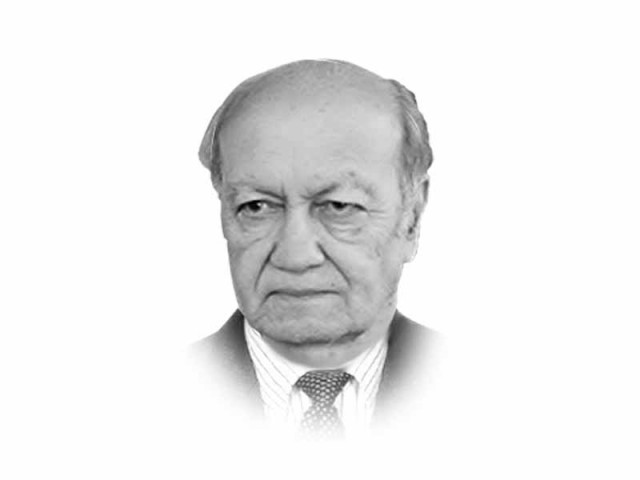Salvation is in self-correction
How are we going to deal with these major anomalies and weaknesses?

The writer is a retired lieutenant general of the Pakistan Army and a former federal secretary. He has also served as chairman of the Pakistan Ordnance Factories Board
One could always rationalise the overstepping and expansion of state institutions on the pretext that it is a direct result of overall inefficiencies that invariably create a vacuum resulting in intervention by other organs of the state. But the consequences of these failings are gravely undermining the state.
A recent glimpse of our low international standing was so obvious when only seven countries out of the 200 have been black- or grey-listed by the Financial Action Task Force and we will be soon joining this infamous group in June this year. Needless to mention the derogatory remarks of President Trump we had to bear at the beginning of the year despite the loss of thousands of our brave soldiers and civilians in the fight against terror.
This in brief is the overall national and international pressure that the country is facing with elections only a few months away.
The question is how are we going to deal with these major anomalies and weaknesses and move forward towards becoming a normal state? A recent demonstration of how base has become our politics when it became an open secret that several Senate candidates won elections by spending a fortune notwithstanding some may have won on the basis of merit. There would be few countries where winning a Senate seat would require a huge bank balance and such reprehensible political manipulation. The pity is that while millions were being spent to buy Senate votes, Pakistan’s external debt stood at around $85 billion by end of 2017 and servicing costs were continuously on the rise. This flagrant use of black money only confirms that economic governance both at the federal and provincial level remains seriously flawed. It also confirms how corruption is polluting politics and accountability is being deliberately avoided. For in an environment of this nature it becomes increasingly difficult for people of modest means to enter politics. More troubling is that it distorts the value system of the entire society where corrupt people are respected and honest are considered as too simple for this world. Then those who enter the Senate or the National Assembly spending millions would also try to recover it by foul means. The implication being that then there can be no serious accountability or rule of law. Certainly, this is not what the majority of people of Pakistan would like their representatives to be.
There are specific reasons why corrupt money is a curse. It is a serious impediment to the development of modern political or economic institutions. In addition, it corrupts the bureaucracy as well. Last year the shameful revelation of a powerful bureaucrat of Balochistan having stacked millions of dollars in his home is a glaring example of how lack of accountability destroys the economy and undermines democracy.
Moreover, experience shows that low prestige of the political class makes it vulnerable to interference in their domain by other institutions. It is a different matter that the international and regional situation and weaknesses within other state institutions is allowing democracy in Pakistan to limp along. In no way does it serve the interest of Pakistan if any state institution abuses its power and throttles legitimate political power. Experience shows that conflict among institutions further undermines the already meagre incentives that our economic and security situation offers for foreign investment. If the political parties and other state institutions would at this critical juncture show restraint and focus on political stability and economic change Pakistan would be a different country. We cannot change our past but certainly work toward a better future. Similarly, no one institution can alter the destiny of the nation, it has to be a collective effort. It is important to bring about institutional reforms in Pakistan but from what I have observed over the years it is more important, in fact critical, to change the quality of relationship between institutions. Greater mutual respect among institutions and equitable distribution of political and economic power would bring greater stability and equilibrium in Pakistan. This should also improve the confidence level between the provinces and the centre. Otherwise institutions will remain perpetually locked in infighting.
The coming elections offer our leadership a valuable opportunity of putting Pakistan on the right course. This, however, would only be possible if political parties compete on the basis of their manifestos and people judge them on their past performance and future programmes. It is also critical that there should be no manipulation by other state institutions, as has been the practice in the past. The risks for Pakistan are far too great if it fails to address these political, economic, security and governance deficiencies.
Published in The Express Tribune, March 7th, 2018.
Like Opinion & Editorial on Facebook, follow @ETOpEd on Twitter to receive all updates on all our daily pieces.













COMMENTS
Comments are moderated and generally will be posted if they are on-topic and not abusive.
For more information, please see our Comments FAQ